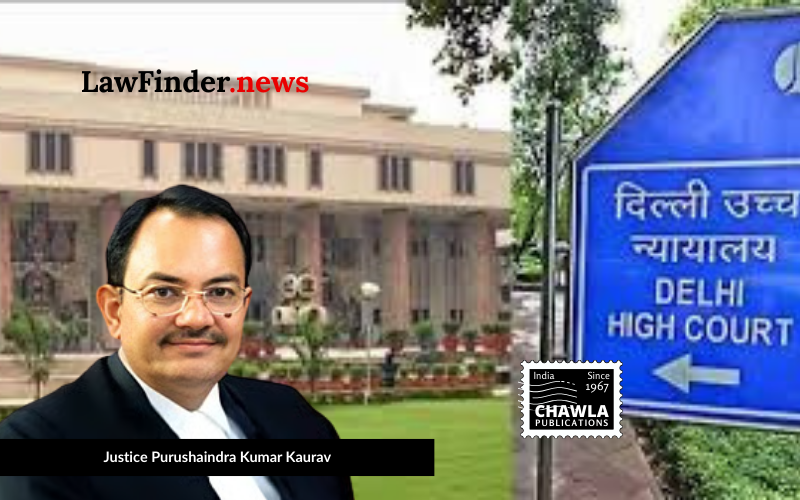Delhi High Court Upholds Civil Suit for Alienation of Affection. Landmark ruling affirms jurisdiction of Civil Courts over tort claims involving marital relationships.
In a significant decision, the Delhi High Court has ruled that a civil suit seeking damages for Alienation of Affection (AoA) is maintainable, marking an important development in Indian tort law. The judgment was delivered by Justice Purushaindra Kumar Kaurav in the case of Shelly Mahajan v. Ms Bhanushree Bahl & Anr., where the plaintiff, Shelly Mahajan, alleged tortious interference by a third party, Ms Bhanushree Bahl, with her marital relationship.
The court addressed the question of whether the jurisdiction of Family Courts extends to independent tort claims against third parties. Justice Kaurav clarified that Family Courts are specialized forums designed to address matrimonial disputes directly arising from marital relationships and do not cover claims like AoA, which involve independent civil rights. The judge emphasized that such claims fall within the jurisdiction of Civil Courts, as they constitute actionable civil injuries arising from independent tortious conduct.
The court reiterated the nascent status of AoA in India, which is recognized as an intentional tort but lacks formal adoption in Indian legislation. Drawing upon precedents, Justice Kaurav noted that while AoA is acknowledged in principle, no Indian statute expressly provides for such actions, nor has any court prescribed a procedure for adjudicating these claims. The judgment highlights the distinction between disputes intrinsically linked to marital relationships, such as maintenance or custody, and those arising from third-party interference.
Addressing objections raised by the defendants, the court rejected the contention that the suit was barred by Section 9 of the Code of Civil Procedure, 1908, and Section 7 of the Family Courts Act, 1984. Justice Kaurav relied on the Division Bench decision in Geeta Anand v. Tanya Arjun, affirming that Family Courts must remain confined to matrimonial causes and not encroach upon civil matters with independent legal cause of action.
The judgment also tackled the issue of personal liberty, noting that while individuals have autonomy over their personal choices, such liberty does not exempt them from civil liability for wrongful interference with marital relationships. The court concluded that the plaint disclosed a civil cause of action for tortious interference, distinct from remedies within the exclusive jurisdiction of Family Courts.
Summons have been issued to the defendants, with instructions for filing written statements and affidavits of admission/denial. The matter is scheduled for further proceedings, signaling potential implications for similar tort claims in India.
Statutory provision(s): Section 7(1)(d) of the Family Courts Act, 1984, Section 9 of the Code of Civil Procedure, 1908, Hindu Marriage Act, 1955.
Shelly Mahajan v. Ms Bhanushree Bahl, (Delhi) : Law Finder Doc Id # 2781871




